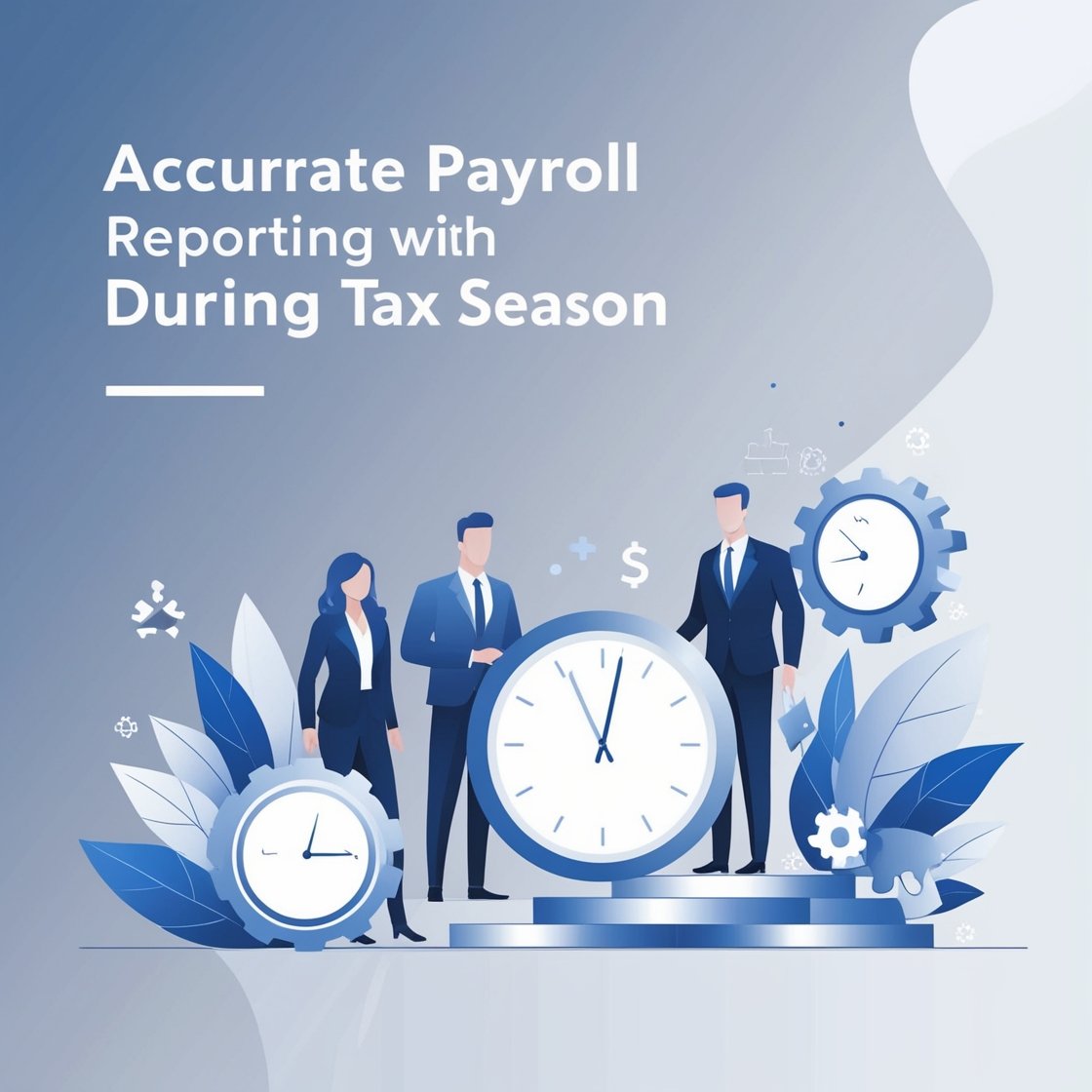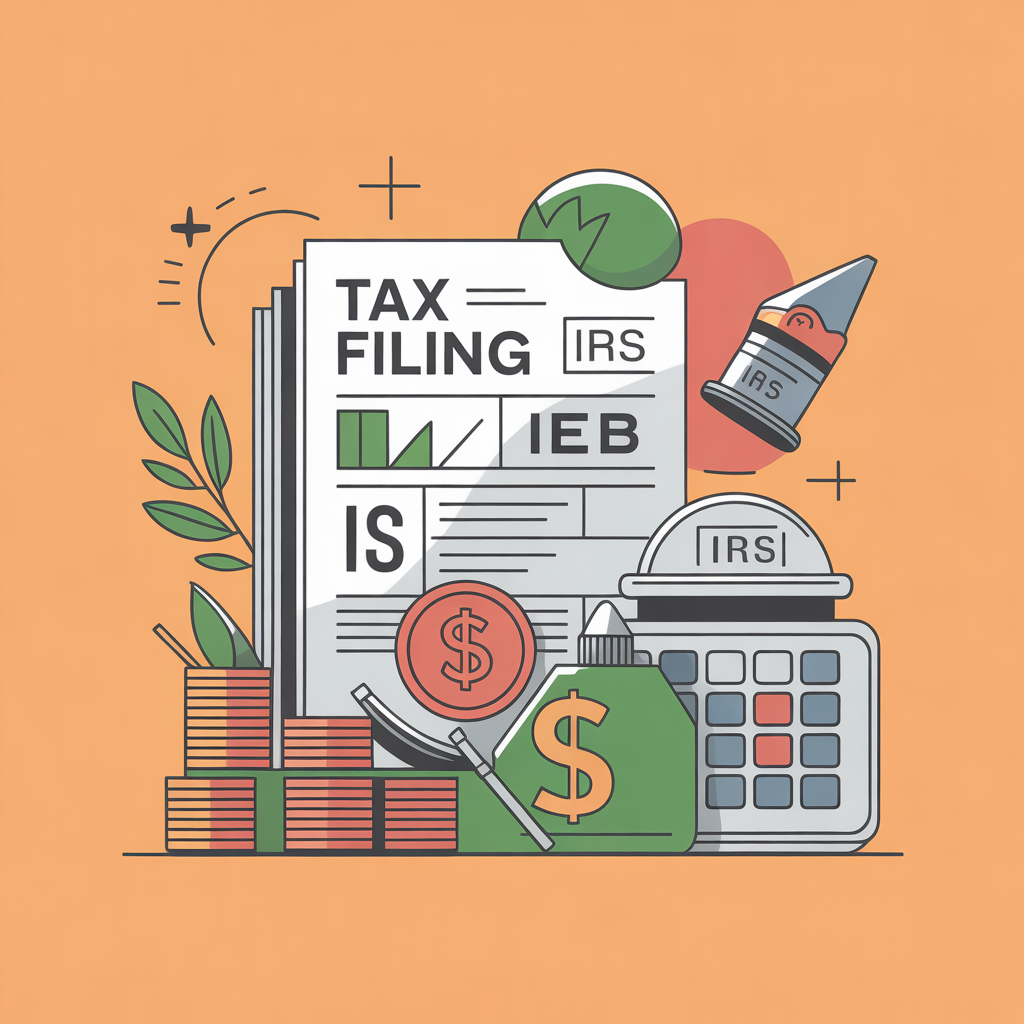Tax season can be a challenging time for any business, especially when it comes to payroll reporting. Accurate payroll reporting is not only essential for compliance with tax laws, but it also helps businesses avoid costly penalties, maintain a good reputation, and ensure employees receive correct tax documents. In this article, we’ll explore why accurate payroll reporting is crucial during tax season, common challenges businesses face, and strategies to ensure your payroll records are tax-ready.
Why Accurate Payroll Reporting Matters
Payroll reporting involves tracking and documenting employee wages, withholdings, tax deductions, benefits, and other compensations. For tax season, these details must be reported accurately to ensure compliance with the IRS and state tax authorities. Errors or inconsistencies in payroll reporting can lead to:
- Penalties and Fines
- Inaccurate payroll reporting, whether due to incorrect tax withholdings or missing data, can result in penalties from tax authorities. The IRS can levy fines for inaccurate reporting or late filings, which can add up quickly and impact a business’s financial health.
- Employee Trust and Satisfaction
- Employees rely on accurate payroll reports for their own tax filings. Mistakes on W-2 forms or late distribution of these forms can create stress for employees and impact their tax refunds or filings.
- Efficient Record-Keeping
- Accurate payroll records simplify tax season for both employers and employees, reducing the likelihood of mistakes and audits. Maintaining up-to-date payroll records allows for streamlined end-of-year reporting and eliminates the need for last-minute corrections.
- Avoidance of Audits
- Proper payroll reporting minimizes the risk of triggering a tax audit. Inconsistencies or missing data can draw attention from tax authorities, resulting in time-consuming audits and potential penalties.
Challenges in Payroll Reporting During Tax Season
Payroll reporting requires accurate data tracking throughout the year, which can be complicated by various factors:
- Frequent Regulatory Changes
- Payroll regulations are constantly evolving. Changes in tax codes, state laws, or federal requirements can make payroll reporting complex, especially for small businesses with limited resources. Staying updated with these changes is critical to accurate reporting.
- Employee Classification
- Misclassifying employees as independent contractors or vice versa can lead to payroll errors. Employee classification affects how taxes are calculated and withheld, and errors can result in penalties for failing to comply with the Fair Labor Standards Act (FLSA) and IRS guidelines.
- Data Accuracy
- From payroll deductions to tax withholdings, accuracy in data entry is essential. Small mistakes in employee hours, overtime pay, or tax withholdings can lead to payroll errors that complicate tax reporting and potentially result in penalties.
- Record-Keeping Requirements
- Businesses are required to retain payroll records for a specific period, typically three to seven years, depending on federal and state requirements. Lack of proper record-keeping can make tax season more stressful and increase the risk of compliance issues.
- Timeliness
- The IRS has strict deadlines for payroll tax filings and employee tax document distribution, such as W-2s. Missing these deadlines can lead to fines and dissatisfaction among employees who rely on timely access to their tax information.
Steps for Accurate Payroll Reporting
Achieving accurate payroll reporting during tax season requires a proactive approach. Here are some strategies to help ensure your payroll records are accurate and compliant:
- Use Reliable Payroll Software
- Payroll software can streamline payroll calculations, tax withholdings, and record-keeping. Many platforms offer automatic updates to reflect changing tax laws, minimizing errors and helping businesses stay compliant. Payroll software also provides reporting tools that make it easier to generate accurate tax documents.
- Regular Payroll Audits
- Performing regular payroll audits helps catch and correct errors before tax season arrives. Audits involve reviewing employee classifications, tax withholdings, benefits deductions, and overtime calculations to ensure that payroll data is accurate and complete.
- Stay Informed of Tax Code Changes
- Monitor updates from the IRS and state tax agencies to keep track of payroll tax rates, benefits regulations, and reporting requirements. Signing up for newsletters or consulting with a tax professional can help you stay ahead of changes that may impact payroll reporting.
- Organize Payroll Records
- Keeping payroll records organized and easily accessible is essential for efficient reporting. Digital record-keeping, with secure backup, ensures that documents are available when needed and reduces the risk of missing records.
- Distribute Employee Tax Forms Promptly
- Ensure that W-2 forms (for employees) and 1099 forms (for contractors) are prepared and distributed by the IRS’s January 31 deadline. Accurate and timely distribution helps employees file their taxes on time and shows that your business respects their financial needs.
- Hire a Payroll Professional
- For businesses with limited resources, outsourcing payroll management to a professional service or hiring a payroll specialist can help ensure accuracy and compliance. Payroll professionals bring expertise in tax laws and can manage the complexities of payroll reporting, allowing business owners to focus on growth.
Benefits of Accurate Payroll Reporting
When payroll reporting is accurate, businesses experience a range of benefits:
- Compliance Assurance: Accurate payroll reporting ensures that businesses meet IRS and state tax requirements, reducing the risk of penalties and audits.
- Time Savings: Having organized, accurate payroll records streamlines tax season, saving time and reducing stress for both employers and employees.
- Employee Satisfaction: Providing timely, accurate W-2s and other tax documents demonstrates that the business values its employees’ time and needs, leading to increased trust and satisfaction.
- Reputation Management: A business known for reliable payroll practices gains credibility, which is especially important for attracting top talent and building client relationships.
Conclusion
Accurate payroll reporting is essential for a smooth, compliant tax season. By using reliable software, staying updated on regulatory changes, conducting audits, and organizing records, businesses can avoid common payroll errors and the risks that accompany them. Prioritizing accuracy in payroll reporting shows a commitment to compliance, employee satisfaction, and efficient operations.
For any business, large or small, getting payroll right every tax season is an investment in long-term success. It’s more than just crunching numbers – it’s about establishing a strong foundation of trust, compliance, and operational excellence.






